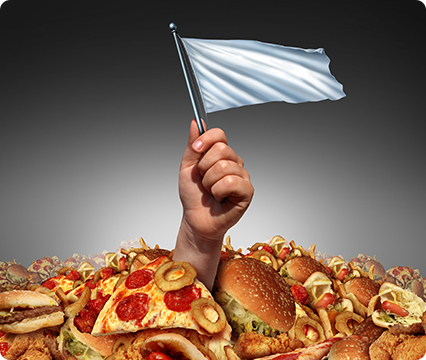Fat addiction: psychological and physiological trajectory
This 2019 review examined the literature on fat addiction, collated data on its physiological and psychological implications, with the focus on addressing the clinical relevance of addiction to fat-rich diets and on discussing the current physiological research directions. While fat in the diet provides us with an important source of energy along with its rewarding and reinforcing properties, the dietary reference intake (DRI) recommends a 35% limit of total calories consumed as fat. Sarkar et al. (2019) mentions that psychological vulnerabilities like attentional biases have been identified in individuals described to have had fat addiction – a condition that has similarities with the construct of addictive disorders but is distinct from eating disorders or normal eating behaviors. While the concept of food addiction had gained widespread attention in recent years, the authors aim to discuss the addiction to high-fat foods as a prominent subset of food addiction. [NPID: sugar, processed food, food addiction, addiction, fat addiction, attentional biases, eating disorders, high-fat]
Year: 2019

 Navigation
Navigation






